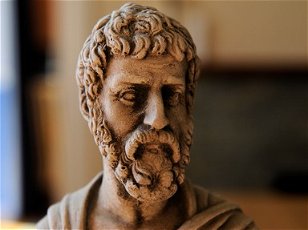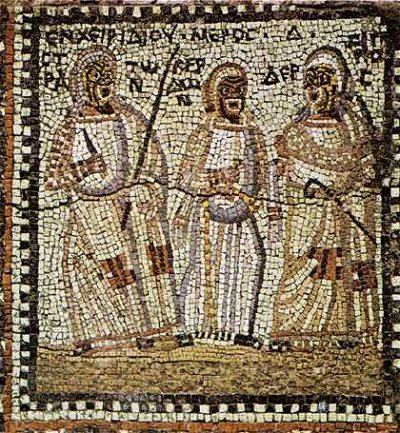
The Works of Three Great Greek Playwrights
Aeschylus. Euripides. Sophocles. Three great playwrights. All Greek and tragic. Can you identify whose work is whose? Average, 12 Qns, LeoDaVinci,
Mar 06 24

 In ancient Greece people attended plays that were classified as either tragedies, satyr plays, or comedies. This quiz will focus on comedies.
In ancient Greece people attended plays that were classified as either tragedies, satyr plays, or comedies. This quiz will focus on comedies. |
|
 Quick Question
Quick Question = Top 5% Rated Quiz,
= Top 5% Rated Quiz,
 Top 10% Rated Quiz,
Top 10% Rated Quiz,
 Top 20% Rated Quiz,
Top 20% Rated Quiz,
 A Well Rated Quiz
A Well Rated Quiz
· All questions, answers, and quiz content on this website is copyright FunTrivia, Inc and may not be reproduced without permission. Any images from TV shows and movies are copyright their studios, and are being used under "fair use" for commentary and education.